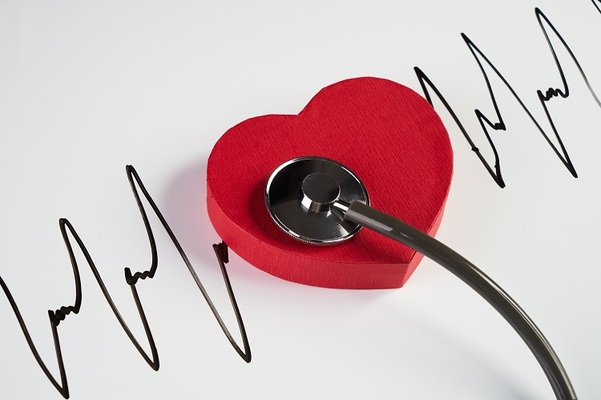
Arrhythmia means an irregular heartbeat. Most of us face it without experiencing serious health problems. Arrhythmia disrupts the blood supply to organs, which can cause more than serious damage to your body, especially your brain, heart, and lungs.
1. Avoid stress
Stress and heart disease always go along. Stress increases the level of cortisol, a hormone that has a vasoconstrictive effect, and this can trigger the outcome of arrhythmia. Try to cope with stress and anxiety, as they cause an instinctive fight or flight response in the body and increase the heartbeat. Breathe slowly and more deeply to slow your heart rate. Try to overcome stress and relieve anxiety.
2. Minimize your caffeine intake
Caffeine is a stimulant that makes your heart beat faster, which can also trigger a problem of arrhythmia. Stimulants are often included in cough and cold medications. They can be present in herbal and nutritional supplements. Study the composition of your medicine and consult with a cardiologist before taking any medications.
3. Get rid of sleep apnea.
Sleep apnea interrupts your normal nighttime breading. Sleep apnea is caused by an involuntary pause in breathing, while in obstructive sleep apnea syndrome, the passage of air is blocked due to the lowering of the walls of the upper respiratory tract. Sleep apnea is clearly associated with heart diseases such as arrhythmia.
4. Stop smoking and drinking alcohol
Tobacco and alcohol consumption leads to the narrowing of your blood vessels. It causes your heart to work at its breaking point, which is a risk factor for an irregular heartbeat. Drinking large amounts of alcohol over a long period of time or even at once can cause arrhythmia. Alcohol disrupts the nervous system that controls the heart's contractions and can temporarily lead to an irregular heartbeat.
5. Develop a balanced diet
This is probably the easiest way to reduce the risk of arrhythmia. Eat more fruits, vegetables, and whole grains. Don't forget about meat, poultry, and dairy products that are high in meat.
Consult your doctor to develop a healthy dieting program.
6. Eat more avocado
Avocado is a source of monounsaturated fats, which increase the level of good cholesterol and reduces the level of bad cholesterol. You can add avocado to salads, dressings, and sandwiches. Eat it raw - just don't forget to wash it.
7. Start cooking with olive oil
Olive oil is a valuable source of monounsaturated fats that are good for your health. It is better to buy extra virgin olive oil. It is healthier than the refined version of olive oil. Start cooking with olive oil instead of butter or vegetable oil.
8. Implement more nuts into your diet
Nuts are rich in omega-3 fatty acids. These fatty acids can fight the inflammation in your blood vessels that can lead to the development of different heart diseases. A handful of hazelnuts or almonds as a snack is both delicious and healthy.
9. Eat more fresh berries
Berries are a natural source of antioxidants, which can detox your body. Berries also have anti-inflammatory properties. They can reduce the risk of arrhythmia, other heart diseases, and cancer as well.
10. Eat more beans
Beans are rich in fiber, which reduces the amount of cholesterol in the body. They contain large amounts of extremely useful omega-3 fatty acids and calcium. Discover all those beans recipes- you won't regret it!
11. Learn about the warning signs of arrhythmia
The most common cause of arrhythmia is heart disease. But there are other factors that can cause it. Seek immediate medical attention if you experience heart palpitation, slow heartbeat; chest pain, or breathing difficulties.
The bottom line
An arrhythmia can occur for many reasons, including heart disease, smoking, alcohol consumption, excessive amounts of stress, and physical activity. It may appear suddenly without any apparent reason. Knowing how to avoid these risks will help you live a healthier and longer life.

